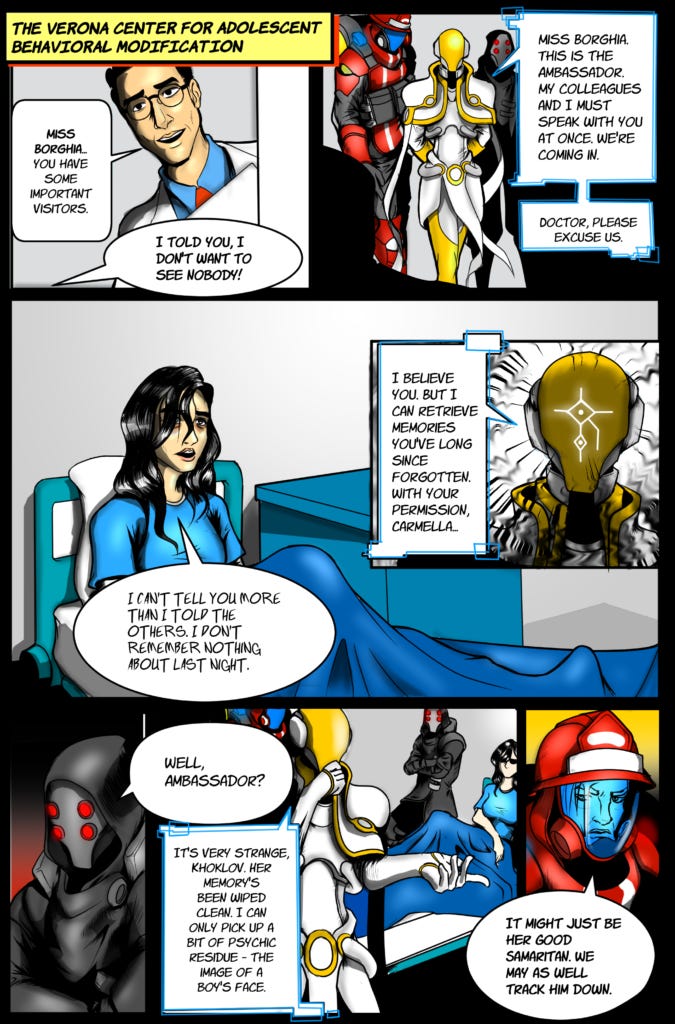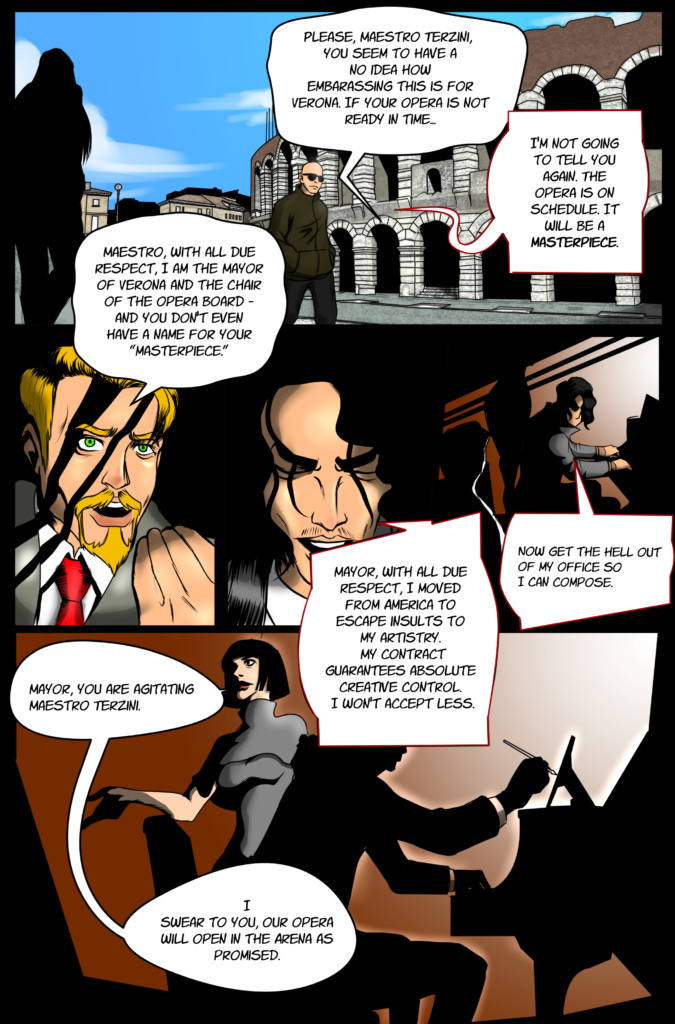Reflections on My Illustration Contest
You might not realize from EconLog or my academic work, but I love crafting and sharing stories. Some are true, at least as far as memory serves. I’ve told my kids hundreds of stories over the dinner table, most revolving around absurd events of my childhood. I’ve also written a pile of fiction, mostly for my artisanal role-playing games. I’ve explored almost every genre that’s game-worthy: high fantasy, superheroes, crime, dystopian, absurdist comedy, conspiracy, war, westerns, and even Bollywood. And as you might guess from my Open Borders, I am also a huge fan of the graphic novel format. Indeed, years earlier I wrote a fictional graphic novel, Amore Infernale; you can check out the storyboards here.
Since Open Borders has done well, I’m now trying to get my earlier book illustrated and published. Making the transition from non-fiction to fiction is, however, harder than it looks, so I’ve decided to simply find and hire an illustrator on my own. My search process is quite involved, but years ago my friend Dave Hedengren sponsored an illustration contest for me, so I decided to do the same. Overall, running my own illustration contest was a great experience. Here’s what I learned along the way.
1. Many Western artists have a strong norm against contests. Why? As far as I can tell, critics deem contests “exploitative” because a lot of entrants work hard for zero pay.
2. You don’t have to be a free-market economist to see how absurd this norm is. Most artists “work” for free anyway, because no one on Earth is ready to pay them for their efforts. So why would it be bad to at least give such artists a chance to earn some money doing what they love? Artists with good outside options can and will opt out. Artists who really need the money or don’t love art that much can have a day job. Contests are a good option for the artists who remain.
3. There’s a close analogy between contests and unpaid internships. In both cases, workers who aren’t worth training at the minimum wage can practice their skills and make connections by working for free. This in turn (a) tells people whether they’re cut out for the career they’re trying, and (b) paves the way to a better future.
4. Are opponents of contests (and unpaid internships, for that matter) deliberately trying to hobble the next generation of competition? I doubt it; their complaints seem impulsive, not strategic. When they say, “It’s not fair!” they’re blurting out their unschooled opinions, not crying crocodile tears.
5. My prize was $400 to draw pages 4, 5, 6, 7, and 8 of my storyboards. For Western artists, this would be a modest payday even if they were sure to win, just $80 a page. In the end, however, 53 artists tried their luck. As the basic economics of immigration predicts, almost all of the entries were from developing countries. Naive observers might assume that the internet has already integrated global art markets, but this is plainly not the case. (Along the same lines, you might think that the internet would allow programmers to earn the same pay from any location on Earth, but Indian programmers get a huge pay increase if they reach the U.S.).
6. I was a little disappointed during the first two weeks of the contest. No one even seemed to be trying to draw more than one or two pages. But artists picked up the pace at the end. On the last day of the contest, I had to choose between five great takes on all five pages.
7. Despite everything I’ve said, choosing the winner was painful for me. I really did get invested in the artists’ dedication to their craft, as well as glimmers of their personal stories. I spent more time visualizing the disappointment of the near-champions than the elation of the actual winner. Running the contest made me feel like a boss – which made me start feeling responsible for everyone working for me. Perhaps that shows that I’m not cut out to be a boss.
8. The winner of my contest is a promising young artist from the mountains of the Philippines, who works under the name Aljon Dave D. (or just “Dave”). He’s a classy guy; just read his victory statement:

9. I’ve never tried self-publishing before, but since this is a work of fiction, I’m willing to give it a try. Publisher certification must matter less when readers are looking for entertainment alone, rather than a mix of entertainment and truth. If I do self-publish, Jason Brennan and Peter Jaworski’s work on commodification has inspired me to try to monetize this project to the hilt. I won’t just sell autographed hard copies and ads; I’ll sell product placements, and auction off the chance to select the model for minor characters. If you want the Mayor of Verona to look like you, I will make it happen.
10. My two favorite pages are below. You can see Dave’s entire winning entry here, along with the rest of the competition. The decision was tough, but Dave won me over with his creativity and the expressiveness of his characters. I still haven’t settled on an illustrator for this project, but Dave is a prime contender.


The post Reflections on My Illustration Contest appeared first on Econlib.

